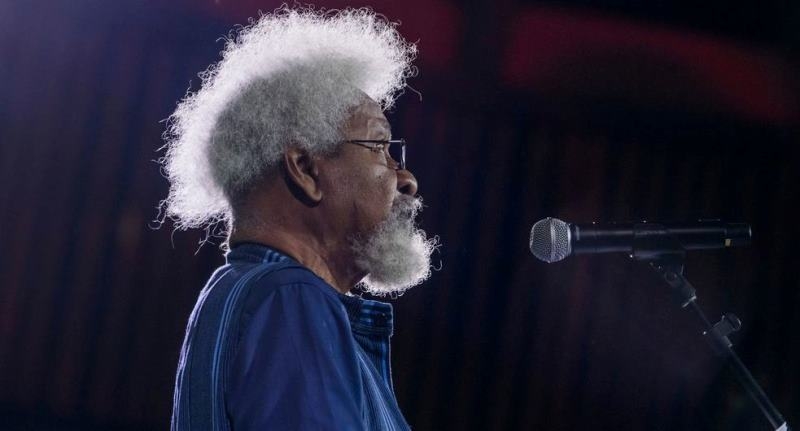- Middle East War Puts Bangladesh Jobs at Risk |
- Starmer criticises Trump, defends UK position not to allow use of its bases |
- Iran War: Nuke watchdog urges restraint amid ongoing strikes |
- 80pc tube wells in Chhatak run dry; water crisis acute |
- Advance Eid train ticket sale begins |
UN Achieve: Nigerian Nobel Laureate Condemns online hate

Wole Soyinka, playwright, poet and Nobel Laureate, reads an original poem written for children at UNGA high-level meeting on the 30th anniversary of the Convention on the Rights of the Child in 2019. UN Photo-Mark Garten
13 June 2024 - This #ThrowbackThursday, when the world celebrates the Day for Countering Hate Speech, we are looking back at how Nobel Laureate for Literature Wole Soyinka wielded powerful words to clobber online hate speech, call out religious extremism, and refute the notion that human rights are imposed by the West.
“Any suggestion that freedom of expression is a luxury of the West insults the historic struggles of individuals and communities all over the world for the dignity and wellbeing of their kind, for social fulfillment, equality of opportunity, equitable sharing of resources, access to shelter, nourishment and health,” said Mr. Soyinka, who spoke in 1993 at the World Conference on Human Rights, as a special guest of the UN Secretary-General.
In 1999, the novelist and playwright was appointed as one of seven of the first UN Goodwill Ambassadors to promote awareness of the World Conference Against Racism in 2001, which aimed to take concrete steps to fight racism, xenophobia, antisemitism and other forms of intolerance.
The famed writer who penned Chronicles from the Land of the Happiest People on Earth has since visited UN Headquarters on several occasions, including a memorable appearance at a debate on the culture of peace in 2012.
During that event, the online distribution of the anti-Islamic film Innocence of Muslims that triggered violent reactions around the world had featured prominently as an example of extremism and intolerance.
Futile to try and prevent 'infantile' insults to religion
To that, Mr. Soyinka presciently told ambassadors that it was futile to try and prevent “infantile” insults to religion from spreading through technology, but that the same technology should be used to “educate the ignorant”.
Religious extremism was holding the world to ransom by using religion as an excuse for crimes against humanity, said the author, who also served on a panel on peace and dialogue among cultures with the UN Educational, Scientific and Cultural Organization (UNESCO).
Likening attacks on Islam at the time, that had resulted in violent protests and deaths in several countries, to “the infantile scribble we encounter on public toilets”, he urged people to ignore and “walk away from them” rather than answering with “equally infantile responses that are however incendiary and homicidal in dimension and largely directed against the innocent”.
Stern warning to world leaders
He also issued a stern warning to world leaders.
“The science fiction archetype of the mad scientist who craves to dominate the world has been replaced by the mad cleric, who can only conceive of the world in his own image,” said the writer.
“The sooner national leaders and authentic religious leaders understand this and admit that no nation has any lack of its own dangerous loonies – be they known as Ansar Dine of Mali or Terry Jones of Florida – the earlier they turn their attention to real issues of human priority.”
He concluded by saying it would be “pathetic to demand what cannot be guaranteed”, namely for all people to adhere to absolute tolerance all of the time.
“It is futile to reign in technology,” he said. “The solution is to use that very technology to correct noxious conceptions in the minds of the perpetrators of abuse and educate the ignorant.”
Stories from the UN Archive series
Drawn from almost 50,000 hours of historical footage and audio preserved by the UN Audiovisual Library, the series highlights moments across the first century of UN operations.
Catch up on UN Video’s Stories from the UN Archive playlist here and our accompanying series here.
Stay tuned next week for another dive into the past. – UN News

